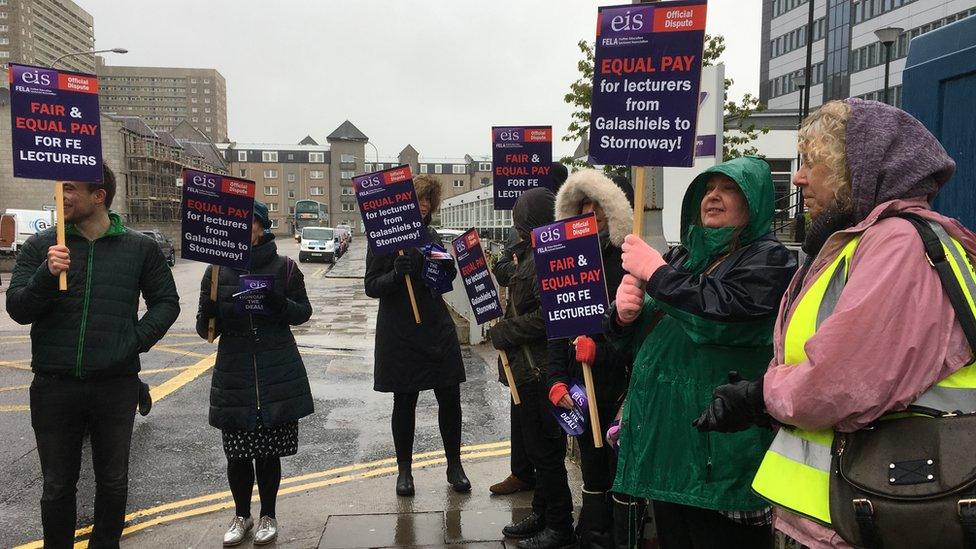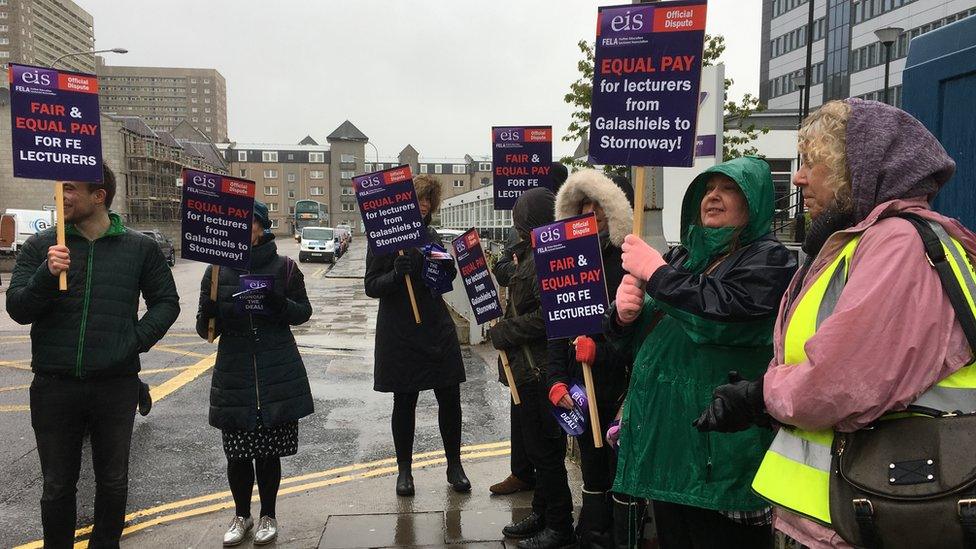Audit Scotland report reveals drop in college student numbers
- Published

Student numbers at Scotland's colleges have fallen to the lowest level for almost a decade, according to a spending watchdog.
Audit Scotland's annual review of the sector found there were 220,680 students by headcount in 2015/16, the smallest number since 2006/07.
It said the financial health of colleges remained "relatively stable" but it has deteriorated since 2014/15.
The Scottish government disputed some of the figures used in the report.
But it sparked criticism of the government by opposition parties and unions, which claim the further education sector needs more funding.
Financial pressures
The report found that part-time students fell by 8% from 2014/15, to 151,498 in 2015/16 while full-time students were down 1% over the same period to 77,332.
However, as overall demand for college places is not recorded nationally, it is not known whether this decrease is due to a fall in demand.
Auditor General Caroline Gardner said: "There is a growing risk to colleges' ability to keep delivering what the Scottish government requires from the sector as a result of major financial challenges and a declining student population.
"Colleges need to plan ahead so their future budgets can withstand the impact of cost pressures.
"Demand for college courses and the effects of demographic shifts also need to be assessed so educational provision can be designed around these."
Government funding will increase between 2015/16 and 2017/18, but most of this relates to a capital project at Forth Valley, with the sector still facing several financial challenges, the report states.

Lecturers have staged a series of strikes in dispute over pay and conditions
Colleges Scotland has estimated that implementing national bargaining, to harmonise pay and conditions for all college employees, could cost about £80m over three years.
Since 2012/13, the government has set a national target for the colleges to deliver a specific volume of learning.
Despite the fall in students, the sector exceeded the target in 2015/16, with 1,752,536 credits achieved against a target of 1,689,431, but performance has declined since 2013/14.
Demographic changes - such as a decline in 16 to 19-year-olds - are also expected to make it harder for the sector to continue to meet the target in future years.
The Scottish government said some of the figures used on student numbers were not directly comparable with data gathered a decade ago and that overall student headcount had increased slightly over the past year.
A spokeswoman added: "This report highlights that Scotland's college sector is financially stable overall and that colleges continue to exceed their targets for student learning opportunities.
"It also identifies areas where improvements can be made."
She said the government would work closely with the Scottish Funding Council and colleges to consider the report's findings.

Scottish Conservative education spokeswoman Liz Smith said: "These figures show fewer people are entering college than at any time since the nationalists came to power and they have to explain why they've let this happen."
Larry Flanagan, general secretary of teaching union EIS, said: "The EIS is concerned with the continuing drop in student numbers which follows on from last year's similar decline - particularly in the number of part-time students.
"We are concerned that funding across the sector for the year 2017-18 will only increase by 1% after some exceptional capital funding at Forth Valley College is excluded."
Scottish Labour MSP Monica Lennon said: "This report highlights the mess SNP ministers have made of pay deals for college lecturers and the huge cost it will take to settle the deal. The theme here is constant - further education simply needs more funding."
Lib Dem MSP Tavish Scott, said: "The Scottish government's narrow, short-term focus has slashed opportunities for lifelong and part-time learning, depriving many of the chance to gain the new skills they and our businesses need.
"This report rightly calls into question the sustainability of this approach."
- Published3 May 2017

- Published28 April 2017

- Published25 August 2016
